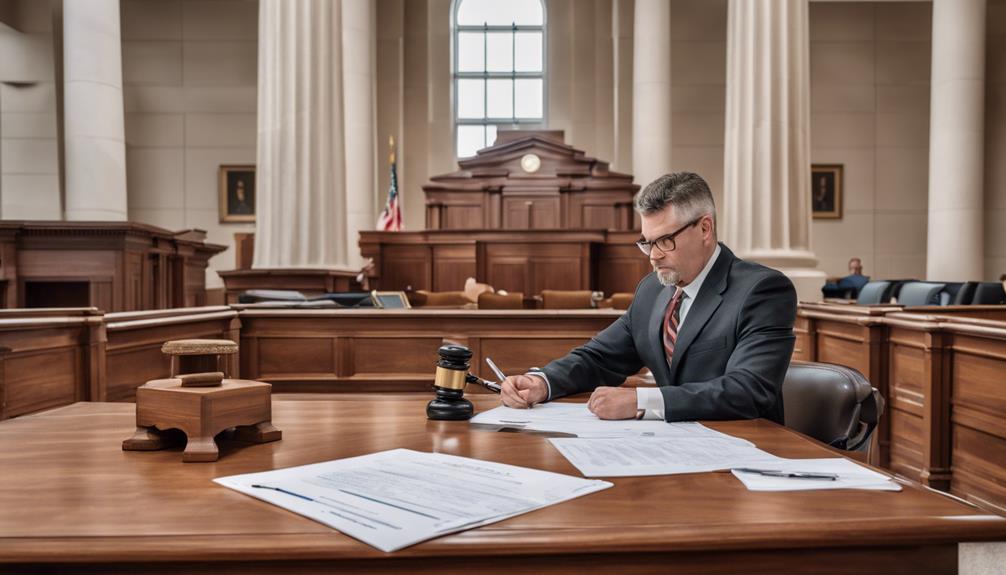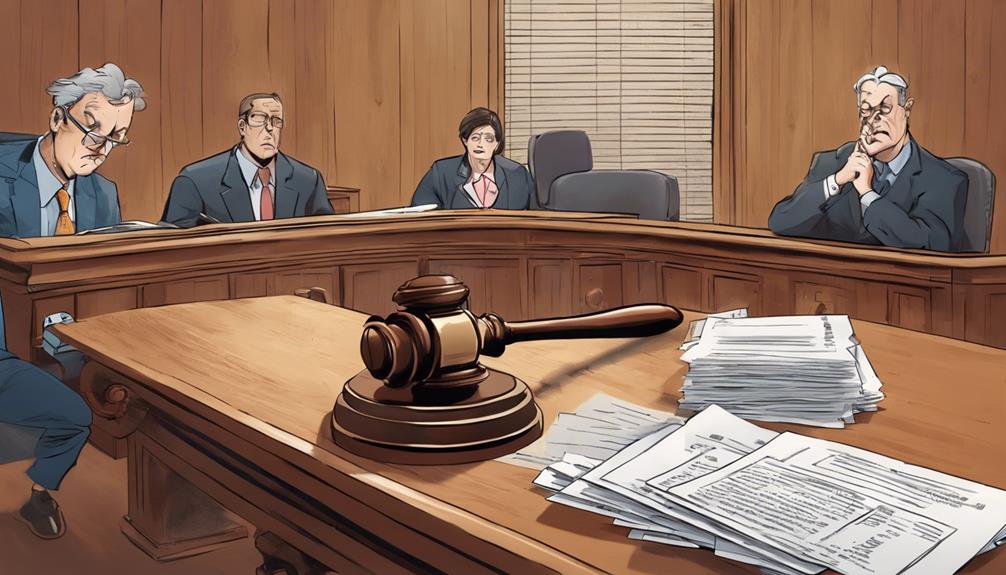When you think about probate law in Overland Park, KS, it's important to grasp how it affects the distribution of assets after someone passes away. You might wonder what steps need to be taken to ensure the deceased's wishes are honored while navigating potential disputes among heirs. Executors carry significant responsibilities, and understanding their role can be crucial. But what happens if conflicts arise or if a will isn't clear? Exploring these complexities can provide valuable insights into the probate process and its implications for you and your loved ones.
Overview of Probate Law

Probate law is a legal process that deals with the distribution of a deceased person's assets and the settlement of their debts. When someone passes away, their estate needs to be managed, ensuring that debts are paid and assets are distributed according to their will or, if there's no will, according to state law. You might find this process daunting, but understanding the basics can help.
In probate, the court oversees the administration of the estate. It validates the will, appoints an executor (or administrator if there's no will), and ensures that all creditors are paid before any distribution to heirs occurs.
You'll need to gather relevant documents, such as the death certificate and the will, to initiate the process.
It's important to note that probate can also involve disputes, especially if there are disagreements among heirs or challenges to the will. You may want to consult a probate attorney to navigate this complex landscape, ensuring everything is handled properly.
Understanding probate law helps you prepare for the responsibilities that come with managing an estate, providing peace of mind during a difficult time.
The Probate Process in Overland Park
When dealing with the probate process in Overland Park, you'll find that it typically begins with filing the will and a petition for probate in the local court. This initiates the legal proceedings to validate the will and distribute the deceased's assets.
It's also important to engage an attorney for tailored legal advice, as they can help ensure compliance with deadlines and minimize errors throughout the process. You'll need to gather essential documents, including the death certificate and asset inventory.
Once the court accepts the petition, it issues a notice to interested parties, informing them of the probate proceedings. This notice allows anyone with a claim against the estate to come forward.
You'll also need to handle any outstanding debts or taxes of the deceased, which can include notifying creditors and settling claims. Proper management of debts and creditor claims is critical in the probate process, as outlined in creditor rights.
Throughout the process, it's crucial to keep meticulous records of all transactions and communications related to the estate. Depending on the complexity of the estate, the probate process can take several months to even years to complete.
During this time, you may encounter various challenges, from disputes among heirs to questions about the will's validity. Understanding these steps will help you navigate the probate process more effectively and ensure that the estate is settled according to the deceased's wishes.
Roles and Responsibilities of Executors

As you step into the role of executor, you'll find that your responsibilities are both significant and varied. First and foremost, you'll need to locate and review the deceased's will to ensure it's valid and determine how assets will be distributed. You're responsible for notifying beneficiaries and potentially addressing any disputes that may arise.
Additionally, understanding the probate process is crucial for effectively managing these responsibilities, as it involves settling taxes, debts, and other obligations before asset distribution, which is outlined in the overview of probate.
Next, you'll need to gather and manage the estate's assets. This includes securing property, assessing values, and determining any debts owed by the estate. It's crucial to keep detailed records of all transactions and communications throughout the process.
You'll also want to file necessary court documents to initiate probate proceedings, which may involve working closely with the probate court and possibly an attorney.
Paying any outstanding debts and taxes is another essential duty, so you must stay organized and on top of deadlines.
Understanding Wills and Trusts
Understanding wills and trusts is essential for anyone involved in estate planning or the probate process. A will is a legal document that outlines how you want your assets distributed after you pass away. It allows you to designate beneficiaries, appoint guardians for minor children, and specify your funeral wishes. By creating a will, you ensure your intentions are clear, reducing confusion for your loved ones.
Additionally, estate planning provides peace of mind regarding future medical decisions and can prevent state intervention in asset distribution, making it a vital step for individuals with children or significant assets estate planning offers peace of mind.
On the other hand, a trust is a more complex arrangement that can help manage and protect your assets during your lifetime and after your death. With a trust, you transfer ownership of your assets to the trust, which is managed by a trustee. This arrangement can help avoid probate, as assets held in a trust typically don't go through the probate process, allowing for quicker distribution to beneficiaries.
Trusts can also provide tax advantages and protect assets from creditors.
Both wills and trusts serve unique purposes, and choosing between them depends on your specific needs and circumstances. It's crucial to consult with an estate planning attorney to determine the best approach for your situation, ensuring your wishes are carried out effectively.
Common Challenges in Probate Cases

Probate cases often present various challenges, even for those who've prepared wills or trusts. One common issue you might face is the validity of the will. Disputes can arise if someone claims the will isn't authentic or if they believe it was made under undue influence.
Another challenge is the distribution of assets. If the estate includes real property, personal belongings, or business interests, determining their value and how to divide them fairly can become contentious.
You may also encounter delays due to the court's processing times, which can prolong the entire probate process and add to your frustration.
Tax implications can also complicate matters. Understanding estate taxes and how they affect the inheritance can be daunting. Additionally, if there are outstanding debts, creditors may claim part of the estate, potentially reducing what heirs receive.
Lastly, family dynamics often play a significant role. Conflicts may arise among heirs, especially if expectations differ from the will's provisions. Navigating these emotional waters requires patience and often the assistance of a probate attorney to help you through the complexities and ensure a smoother process.
Conclusion
Navigating probate law in Overland Park, KS, can feel overwhelming, but understanding the process can make it smoother. Remember, the executor plays a crucial role in honoring the deceased's wishes and managing the estate effectively. Whether you're dealing with wills, trusts, or potential challenges, being informed helps you make better decisions. Don't hesitate to seek professional guidance to ensure compliance and ease throughout the probate process. Your loved one's legacy deserves the best care and attention.

